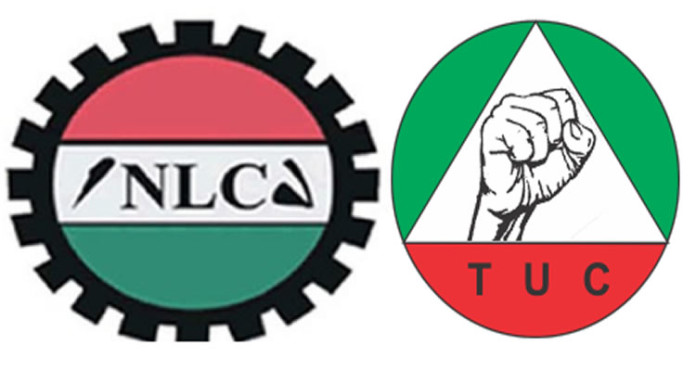Last week, the Nigeria Labour Congress (NLC) and the Trade Union Congress (TUC), jointly proposed N56,000 as the new minimum wage to the federal government.
NLC President, Ayuba Wabba, said the new agitation is to ensure that the average Nigerian worker earns a living wage, lamenting that the current national minimum wage of N18,000 is no longer realistic.
With the formal presentation of the proposal, Ayuba said it behoves the government to quickly set up the tripartite system that would look at the review mechanism.
Wabba recalled that N18,000 was negotiated when the naira exchanged at N100 to $1, and said the current economic situation drastically affects purchasing power, making an upward review even more imperative.
He argued that payment of a realistic wage which he thinks N56,000 is, will help the government get a handle on corruption.
“Minimum wage is … an issue we must take on board, if we want to address the issue of corruption. Without taking proper care of the worker, it is very difficult,” he said.
Why the reasons adduced for a renew remain germane, the jury is still out on whether wage increase is really the answer to the numerous problems confronting the Nigerian worker.
It is also instructive to note that the proposal came the same week President Muhammadu Buhari lamented in Abuja that despite a massive bailout by the federal government last year to most state governments, 24 of them were still in distress and finding it difficult to pay salaries.
In fact, most of the states threatened last year either to downsize their workforce or reduce the minimum wage. And the question Labour leaders need to answer is whether states that find it difficult to pay N18,000 can pay N56,000.
Incidentally, the argument workers are making for a new minimum wage is the same states are adducing as excuse for their inability to pay.
While workers are saying that N18,000 was negotiated when $1 exchanged for N100, states insist that at that time crude oil sold at $100 or more per barrel, which meant that they had more money to meet their financial obligations unlike now.
There has been a great deal of controversy over what constitutes living wage in Nigeria. Is minimum wage necessarily a living wage?
While we agree that the take home package of an average worker should sustain him, we, nevertheless, wager that the current woes of workers have nothing to do with wages, per se.
Low wage in a hyper-inflationary milieu is symptomatic of the deeper problem but is not, by itself, key. The overarching agenda should be how we can address the lot of the poor.
While it is true that if workers had higher incomes, then, by definition, that would lower poverty, yet that also depends on the value of the money.
If N56,000 cannot buy tomorrow what N18,000 buys today because of inflationary pressures on the economy, then of what value will it be?
We believe that raising wages when the country is experiencing an economic downturn will lead to further job cuts, lower chances of future hiring, increase capital investment in automation, and increase employer revenue losses due to reduction in demand for goods and services.
Definitely, this is not what the NLC and TUC want.
Instead, they should device means of prodding government to invest hugely in the private sector through policies that will help grow and support the economy.
Workers would be better off if their leaders pressure the government to attend to the massive infrastructure deficit stiffling development in the country and helping to facilitate the misery that has become the lot of workers.
Labour should engage governments at all levels and ensure a drastic cut in the humongous cost of running government.
Such pruning, while addressing bloated government, will leave more resources in the public till to be channeled to pressing issues like youth employment, agriculture, provide public goods and services, and assist farmers to ensure better food security.
Like in the days of the Michael Imoudus and Hassan Somonus, the present crop of Labour leaders should hold the government accountable by providing efficient leadership.
Empty rhetoric such as the unrealistic demand for new minimum wage detracts from such ennobling goal.
Increasing wages alone will not solve the problem of Nigerian workers. The solution both in the short and long run lies in ensuring that the government formulates and implements policies that affect the economy in a systematic way — with planning and foresight.

- Advertisement -
- Advertisement -
Must Read
Gordian Chukwuemeka Oranika (1935 – 2024)
Gordian Chukwuemeka Oranika (1935 – 2024)
By Emelie Evarist Oranika
Foremost Nigerian Permanent Secretary and the...












